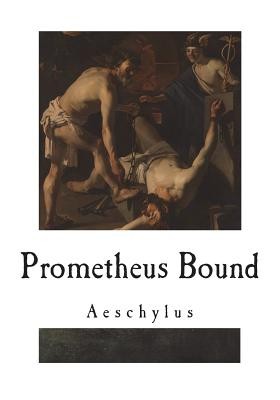
- Išsiųsime per 12–18 d.d.
- Leidėjas: CreateSpace Independent Publishing Platform
- Metai: 2018
- Puslapiai: 50
- ISBN-10: 1722053801
- ISBN-13: 9781722053802
- Formatas: 17.8 x 25.4 x 0.3 cm, minkšti viršeliai
- Kalba: Anglų
- Extra -15 % nuolaida šiai knygai su kodu: ENG15
Prometheus Bound (el. knyga) (skaityta knyga) | knygos.lt
Atsiliepimai
Aprašymas
Prometheus Bound by Aeschylus and translated into English Verse by E.D.A. Morshead. From the plays of Aeschylus. The surviving dramas of Aeschylus are seven in number, though he is believed to have written nearly a hundred during his life of sixty-nine years, from 525 B.C. to 456 B.C. That he fought at Marathon in 490, and at Salamis in 480 B.C. is a strongly accredited tradition, rendered almost certain by the vivid references to both battles in his play of The Persians, which was produced in 472. The Prometheus Bound is conspicuous for its gigantic and strictly superhuman plot. The Agamemnon is human, though legendary the Prometheus presents to us the gods of Olympus in the days when mankind crept like emmets upon the earth or dwelt in caves, scorned by Zeus and the other powers of heaven, and-still aided by Prometheus the Titan-wholly without art or science, letters or handicrafts. For his benevolence towards oppressed mankind, Prometheus is condemned by Zeus to uncounted ages of pain and torment, shackled and impaled in a lonely cleft of a Scythian precipice. The play opens with this act of divine resentment enforced by the will of Zeus and by the handicraft of Hephaestus, who is aided by two demons, impersonating Strength and Violence. These agents if the ire of Zeus disappear after the first scene, the rest of the play represents Prometheus in the mighty solitude, but visited after a while by a Chorus of sea nymphs who, from the distant depths of ocean, have heard the clang of the demons' hammers, and arrive, in a winged car, from the submarine palace of their father Oceanus.
EXTRA 15 % nuolaida su kodu: ENG15
Akcija baigiasi už 02:42:17
Nuolaidos kodas galioja perkant nuo 5 €. Nuolaidos nesumuojamos.

- Leidėjas: CreateSpace Independent Publishing Platform
- Metai: 2018
- Puslapiai: 50
- ISBN-10: 1722053801
- ISBN-13: 9781722053802
- Formatas: 17.8 x 25.4 x 0.3 cm, minkšti viršeliai
- Kalba: Anglų
Prometheus Bound by Aeschylus and translated into English Verse by E.D.A. Morshead. From the plays of Aeschylus. The surviving dramas of Aeschylus are seven in number, though he is believed to have written nearly a hundred during his life of sixty-nine years, from 525 B.C. to 456 B.C. That he fought at Marathon in 490, and at Salamis in 480 B.C. is a strongly accredited tradition, rendered almost certain by the vivid references to both battles in his play of The Persians, which was produced in 472. The Prometheus Bound is conspicuous for its gigantic and strictly superhuman plot. The Agamemnon is human, though legendary the Prometheus presents to us the gods of Olympus in the days when mankind crept like emmets upon the earth or dwelt in caves, scorned by Zeus and the other powers of heaven, and-still aided by Prometheus the Titan-wholly without art or science, letters or handicrafts. For his benevolence towards oppressed mankind, Prometheus is condemned by Zeus to uncounted ages of pain and torment, shackled and impaled in a lonely cleft of a Scythian precipice. The play opens with this act of divine resentment enforced by the will of Zeus and by the handicraft of Hephaestus, who is aided by two demons, impersonating Strength and Violence. These agents if the ire of Zeus disappear after the first scene, the rest of the play represents Prometheus in the mighty solitude, but visited after a while by a Chorus of sea nymphs who, from the distant depths of ocean, have heard the clang of the demons' hammers, and arrive, in a winged car, from the submarine palace of their father Oceanus.




Atsiliepimai